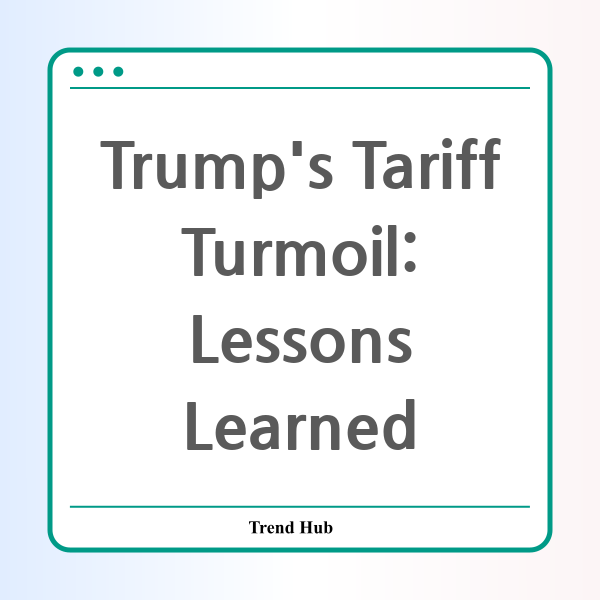* This website participates in the Amazon Affiliate Program and earns from qualifying purchases.

In a world of unpredictable markets and volatile leaders, the latest developments regarding President Trump's tariff policies signal a broader message of caution and complexity for the American economy. As the president announced a universal 10% tariff on all trading partners except China, it raised eyebrows and questions about the implications of his decisions on global trade and the U.S. economy.
Trump's recent announcement came on the heels of a sharp decline in the stock market, which had investors jittery following several days of losses. His trade advisor, Kevin Hassett, attempted to downplay the market plunge, but the reality is that such drastic moves have real repercussions for American households, retirement accounts, and the economy as a whole.
In reflecting on Trump's actions, a pattern emerges that raises critical concerns for the future. His approach, which oscillates between aggressive tariff impositions and sudden reversals, may reveal a lack of coherent strategy. This inconsistency threatens not just economic stability, but the jobs and savings of millions of Americans.
The ramifications of tariff changes can ripple across industries and sectors, often leading to unintended consequences. For instance, while the 90-day pause on certain tariffs might provide temporary relief, the overarching 10% tariff may still act as a burden on American consumers, causing an increase in prices and potential declines in consumer spending.
Moreover, Wall Street's reaction to such announcements reflects a broader sentiment regarding Trump's unpredictable tactics. As fears mount about a potential recession fueled by trade wars, the bond market's response serves as a barometer for investor confidence. The sell-off of U.S. government bonds signals growing skepticism about the stability provided by what was once deemed the world’s safest investment.
Ultimately, Trump's tariff maneuvers could reshape global trade relationships. While he might tout the idea of negotiating favorable terms for the U.S., foreign nations may perceive his lack of consistency as a sign of weakness. This perception could hinder future negotiations and partnerships, as countries wonder if they can trust U.S. commitments.
One of the significant lessons arising from this economic chaos is the need for a well-defined economic strategy. As the administration continues to navigate these turbulent waters, communicating a clear plan to both domestic and international audiences will be crucial. Without a strategic foundation, the risks of economic missteps increase significantly.
As we look toward the future, it's essential for both policymakers and voters to understand the stakes involved. The consequences of Trump's tariff decisions could have lasting effects on U.S. economic health and international relations. With China signaling its readiness to counteract, the next steps taken will be pivotal.
In conclusion, the recent tariff drama highlights a critical juncture for the Trump administration and the U.S. economy. With continued unpredictability and potential fallout, all eyes will remain on how these economic policies evolve and impact our daily lives.
* This website participates in the Amazon Affiliate Program and earns from qualifying purchases.